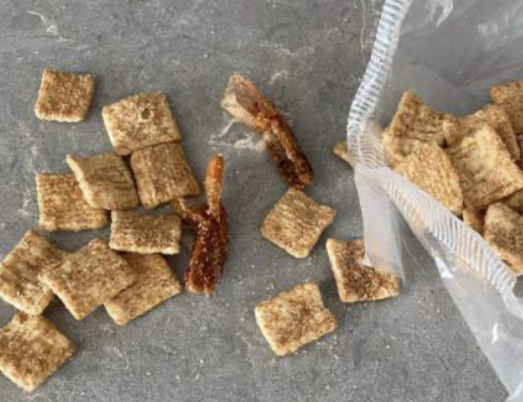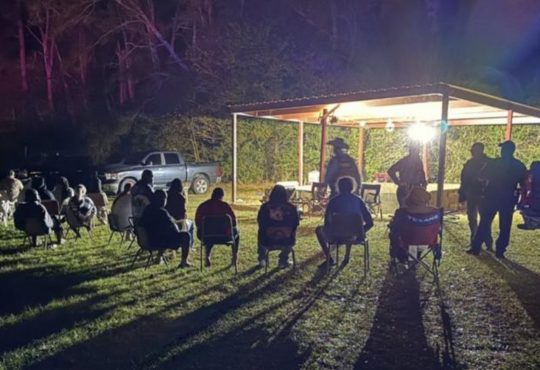
Los Angeles, Cali., — Comedian Jensen Karp was disappointed after he found what looked to be like shrimp tails in his box of Cinnamon Toast Crunch.
“I thought it had something to do with me,” he told reporters, swearing that this wasn’t some sort of prank he lashed out on Twitter. “Then when I looked back into the box and saw another one, I was like, ‘This is bonkers! I thought it was sort of funny. I kind of thought of it as Twitter fodder, or whatever, for a second.”
Karp said he purchased the box of cereal from Costco on Saturday but didn’t open the box until Monday.
Karp, who is an actor, writer, and podcast host, took his claim to Twitter saying that after he discovered the alleged shrimp tails, he also found some squares with dark markings, a string, and other unknown substances at the bottom of the cereal bag which had been taped up.
“I get really grossed out, and I’m medicated for O.C.D., so this has been a total nightmare for me, he told news reporters. Karp mentioned that he is not currently suffering from any physical symptoms.
He made several Twitter posts about his breakfast encounter which led to a social media frenzy with the company who made the cereal.
“Why are there shrimp tails in my cereal? (this is not a bit),” Karp tweeted on Monday.
Karp received a tweet back from the cereal brand questioning him on whether what he had found was actually shrimp tails.
“After further investigation with our team that closely examined the image, it appears to be an accumulation of the cinnamon sugar that sometimes can occur when ingredients aren’t thoroughly blended,” the cereal company responded. “We assure you there’s no possibility of cross contamination with shrimp.
The response Karp received made him upset. “Ok we’ll after further investigation with my own eyes, these are cinnamon coated SHRIMP TAILS, you weirdos. I wasn’t all that mad until you tried to gaslight me?” snapping back to the company’s tweet.
Later that day, the cereal brand posted a tweet acknowledging the company was looking into the incident and assuring customers that the foreign objects could not have made their way in the cereal box from a General Mills facility.
“While we are still investigating this matter, we can say with confidence that this did not occur at our facility,” the company tweeted.
Karp also took to Twitter about the toasted squares in his cereal contained black and red marks and that he was going to take the cereal to a laboratory to be tested. He also reached out to the National Capital Poison Center out of concern that some of the substance could be from rodents.
Karp posted a screenshot with a new response from the company, suggesting that if he didn’t want to ship the cereal back that he could take it to the local authorities as possibly a case of product tampering.
Karp refused to take the cereal box to the police, thinking the officers may not take his situation serious.
Karp posted a tweet on Tuesday that General Mills sent him an envelope for him to send back the substance he found in his cereal. Karp also sent pieces to the National History Museum of Los Angeles for further testing.
“Waiting for the envelope I agreed on from General Mills to send them back pieces,” he posted in a tweet.
General Mills also released a statement:
“While we are still investigating this matter, we can say with confidence that this did not occur at our facility,” Spokesperson Mike Siemienas told news reporters. “We are waiting for the consumer to send us the package to investigate further. Any consumers who notice their cereal box or bag has been tampered with, such as the clear tape that was found in this case, should contact us.”
Health officials has said that it is impossible to prevent food from contaminants. The U.S. Food and Drug Administration created a chart “to establish maximum levels of natural or unavoidable defects in foods for human use that present no health hazard.” The FDA says it established the levels “because it is economically impractical to grow, harvest, or process raw products that are totally free on non-hazardous, naturally occurring, unavoidable defects.”
However, The FDA states their guidelines do not excuse companies of their responsibility to have quality manufacturing processes.






